This post offers a look at fiction set in Paris. Four different novelists take us from the observation of murder and its aftermath in dingy 19th century back-street Paris, to an insider’s view of an elegant 21st century apartment block and its inhabitants. We look too at some short story collections, further extending the range of writing styles, eras and corners of Paris which are covered. If you can’t visit Paris just now, you can at least read all about it.
Sentimental education by Gustave Flaubert
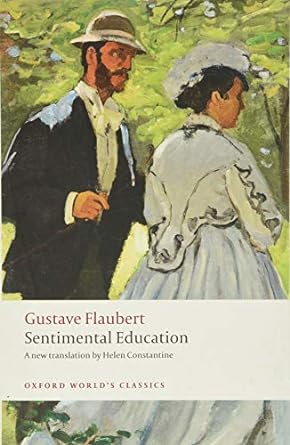
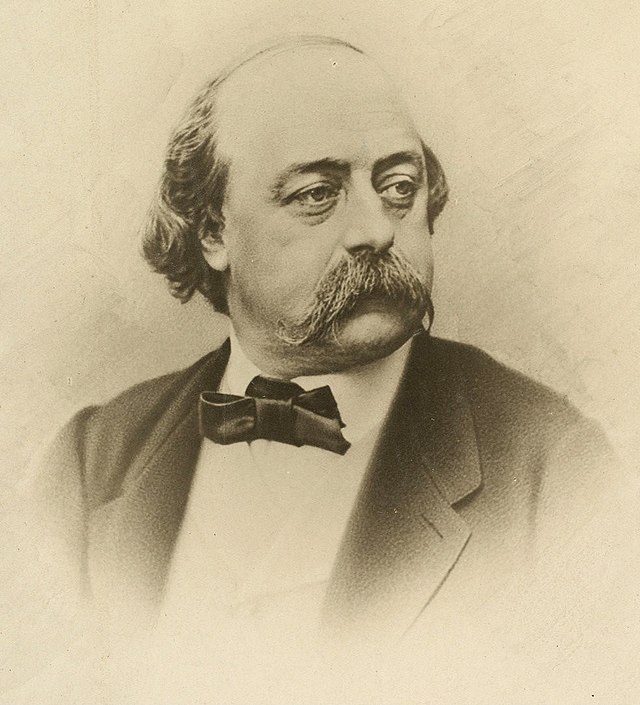
This story of Frédéric Moreau’s youthful infatuation with the older – and married – Madame Arnoux is based on events from Flaubert’s own life. Following Frédéric’s story, the reader is introduced to a wide cross-section of Parisians – aristocrats, students, the ‘other’ women in his life, including the social-climbing Rosanette and the rich widow Madame Dambreuse. The novel has been called a ‘vivid and faithful presentation of the social and political setting’ in 1840s Paris. Many of the scenes are domestic or social in nature, but the 1848 revolution is featured too, although rather as a side issue: Frédéric is more interested in the progress of his love life.
Driving towards the Place de la Concorde with Rosanette:
‘Her hat of pearly straw was trimmed with black lace. The hood of her burnous fluttered in the breeze; and she sheltered from the sun under a parasol of lilac satin, rising to a point in the middle like a pagoda.
‘What sweet little fingers!’ said Frédéric, gently taking her free hand, the left hand, which wore a gold bracelet in the form of a curb-chain.
‘Why, that’s pretty. Where did you get it?’
‘Oh, I’ve had it a long time’.
The young man made no comment on this hypocritical reply.
Thérèse Raquin by Emile Zola
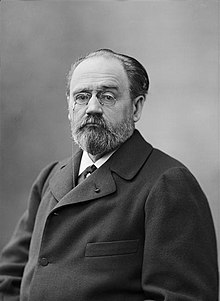
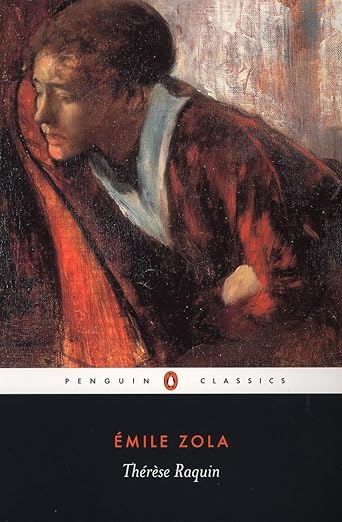
Thérèse is married off to her sickly cousin Camille, which she resents, especially when she meets Laurent with whom she begins an affair. Long story short, the pair murder Camille, so that they can be together, and the rest of the novel portrays their attempts to forget the grisly deed. They can’t. They are haunted by it. They turn on each other. All of this plays out in the dingy backstreets of Paris, allowing Zola to weave plenty of social commentary into his dramatic plot. The principal setting is the grimy little shop run by Thérese’s aunt in the Passage du Pont Neuf, described on the opening page like this:
‘Thirty paces long and no more than two wide, this passageway is paved with yellowish flagstones, loose and worn, constantly oozing an acrid damp; the glazed roof that shields it, peaked at a right-angle, is black with grime. ….. Dug into the left-hand side are some dingy shops, sordid and squat, venting the cold breath of the cellars. Here there are dealers in old books, toy-sellers and pasteboard-makers, whose dust-grey displays lie dim and sleepy in the shadows; the windows, glazed in small panes, cast a strange, shimmering green light over the wares.’
The Elegance of the Hedgehog by Muriel Barbéry
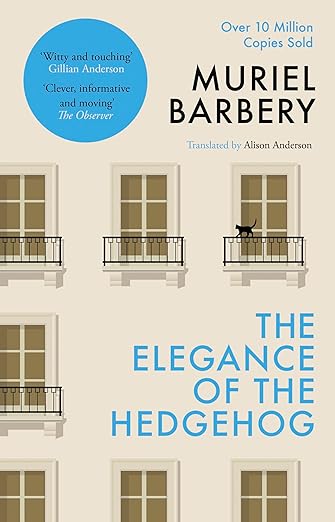
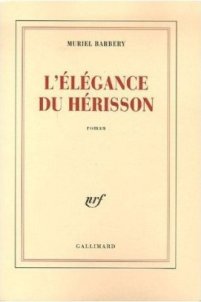
This 2006 novel weaves a story around the residents of an upmarket apartment block: they include Pierre, the food critic ‘who can write entire pages of dazzling prose about a tomato’, Monsieur Broglie, a councillor ‘so conservative that he won’t say hello to divorced people’ and his wife, pithily described as a ‘posh suit, string of pearls, pinched lips’. There are two narrators, who both look on all this with an outside eye: the widowed concierge, Renée Michel whom the residents barely notice and 12 year-old Paloma who confides to the reader that she intends to take her own life on her 13th birthday. Their acerbic descriptions of everyone else are the mainstay of the novel’s humour.
This is Renée, dropping off an envelope at the apartment of Solange Josse:
‘You will recall that as far as the residents are concerned, I am a stubborn concierge who lurks somewhere at the blurry edges of their ethereal vision. Solange Josse is no exception to this rule, but because she is the wife of a socialist member of parliament she nevertheless makes an effort.
‘Good morning’, she says, as she opens the door and takes the envelope I hand to her.
An effort, as I said.’
Murder on the Île Saint-Louis by Cara Black
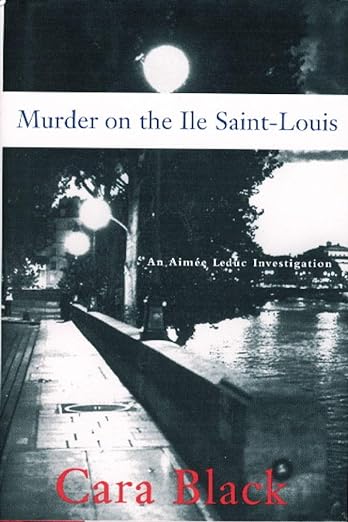
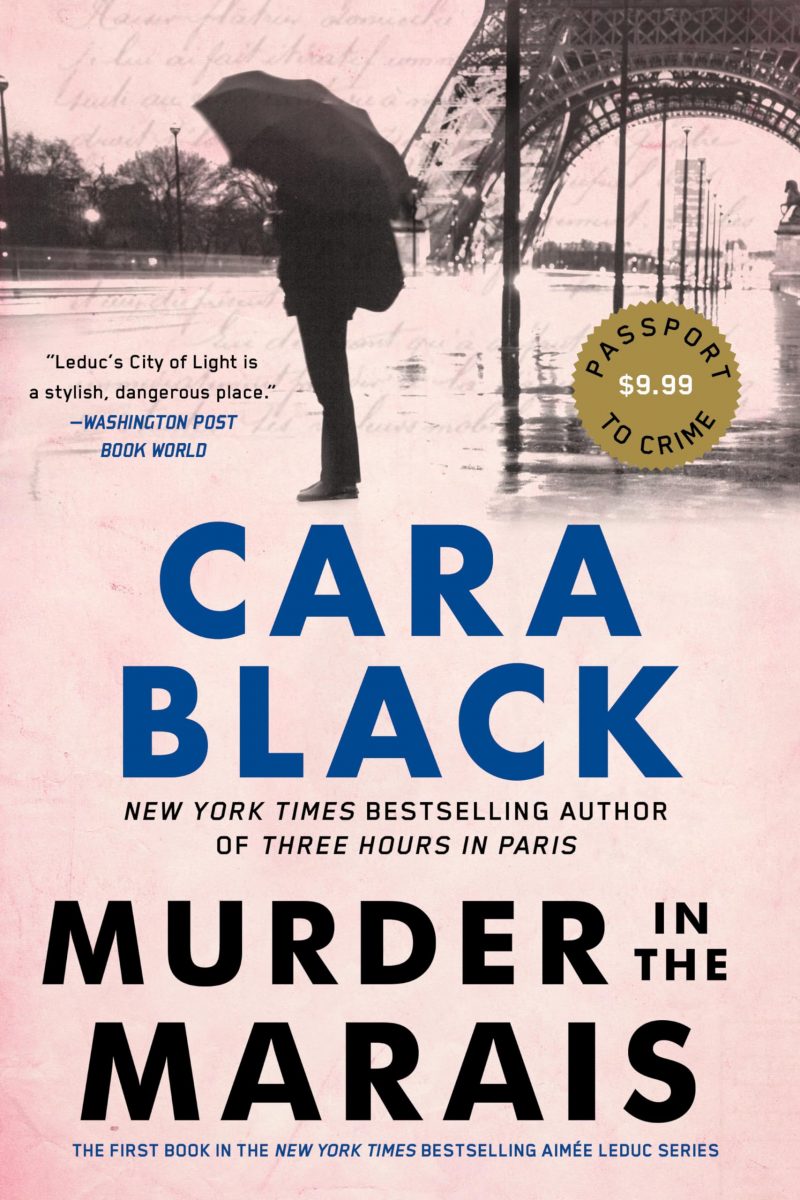
This is one of a whole series of Aimée Leduc investigations, each set in a different area of Paris. The convoluted plot involves, among other things, an abandoned baby, a murder, a group of environmentalists and the goings-on in the Polish Foundation. The action takes you all over the Île Saint Louis, past the bouquinistes and Bertillon’s ice-cream parlour and across the Pont de Sully. It also links back, rather unexpectedly, to the dark deeds done here in World War II which are remembered by a plaque in memory of 112 Jews rounded up and deported by the Nazis. Here are the opening lines:
‘Aimée Leduc sensed the scent of spring in the air, rising from the Seine and spilling through her open balcony doors. A church bell chimed outside; leaves fluttered in the breeze and couples ducked into a nearby brasserie. It was a beautiful night on the Île Saint Louis in the heart of Paris.
She ran her chipped gigabyte green fingernails over the laptop keyboard …..’
Paris Stories Everyman Pocket Classics
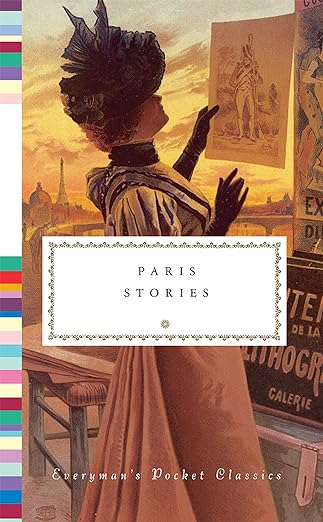
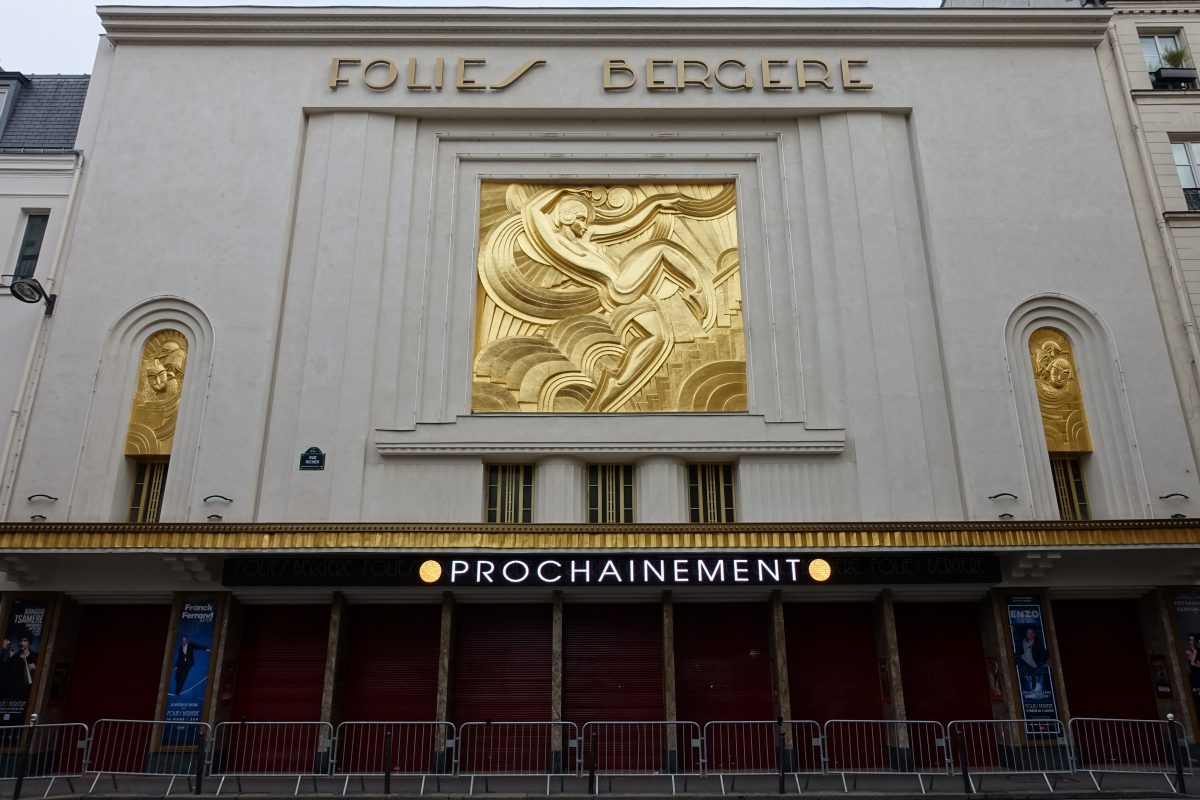
This collection spans nearly five centuries, offering takes on Paris by a wide variety of writers. These include, in no particular order, James Baldwin savouring the sights and smells of Les Halles in the 1950s, Colette recalling the pleasures of Belle Époque Paris and F Scott Fitzgerald taking in the Jazz Age, plus Georges Simenon in the Rue Pigalle and a Maupassant short story titled ‘A Parisian Affair’. The extract below is J K Huysmans joining the crowds at the Folies-Bergère in 1880.
‘After you’ve endured the shouts of programme-sellers and the solicitations of boot-blacks offering to polish your shoes, after you’ve passed through the ticket-barrier where, standing amid a group of seated gentlemen and assisted by a chain-wearing usher, a young man sporting a ginger moustache, a wooden leg and a red ribbon takes your ticket, the stage curtain finally comes into view ….. you can see …. the dull gleam of bald heads and the glossy pomaded hair of the men, the hats of the women stand out, their feathers and their flowers sprouting in profusion on all sides.’
Paris Tales Selected by Helen Constantine
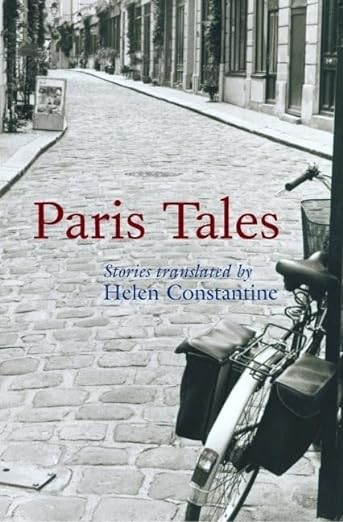
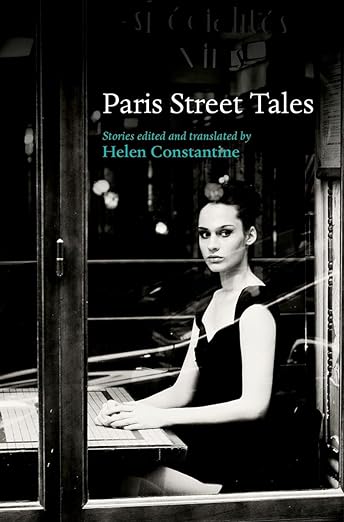
This is one of a series of three books of short stories with a Parisian theme, selected by Helen Constantine. The others are Paris Street Tales and Paris Metro Tales. The 22 stories in Paris Tales take you ‘from the artists’ haunts of Montmartre to the glamorous cafés of Saint-Germain, from the shouts of demonstrators on the Boul’ Mich’ to the tranquillity of Parc Monceau.’ Here are two short extracts.
From ‘In Notre Dame’ by Julien Green (Paris Tales)
‘One Thursday of Holy Week in 1940, as night was drawing in, I found myself in Notre Dame. Some of the cathedral treasures were on display: the nails, if I remember rightly, and, I think, a piece of the crown of thorns. Four or five people were meditating in front of these objects ….. High up in the transept, however, a might tumult raged. The panes in the great north window on the north side had been removed, and in their place was a large piece of sheeting into which the wind plunged with a kind of muffled blast resembling canon fire.’
The opening lines of ‘The Rendez-vous’ by Guy de Maupassant (Paris Street Tales)
‘Wearing her hat and coat, one veil covering her face and another in her pocket to place over the first as soon as she was in that sinful cab, she tapped the pointed end of her little boot with the spike on her umbrella and sat in her room, unable to make up her mind whether or not to go to this rendez-vous.’
Listen to the POdcast
Reading suggestions
Sentimental Education by Gustave Flaubert
Thérèse Raquin by Emile Zola
The Elegance of the Hedgehog by Muriel Barbéry
Murder on the Île Saint-Louis by Cara Black
Paris Stories Everyman Pocket Classics
Paris Tales Selected by Helen Constantine
Paris Street Tales Selected by Helen Constantine
Paris Metro Tales Selected by Helen Constantine
links for this post
Previous episode Moments of HIstory in Paris
Next episode Fontainebleau and Vaux-Le-Vicomte
Last Updated on February 11, 2026 by Marian Jones





